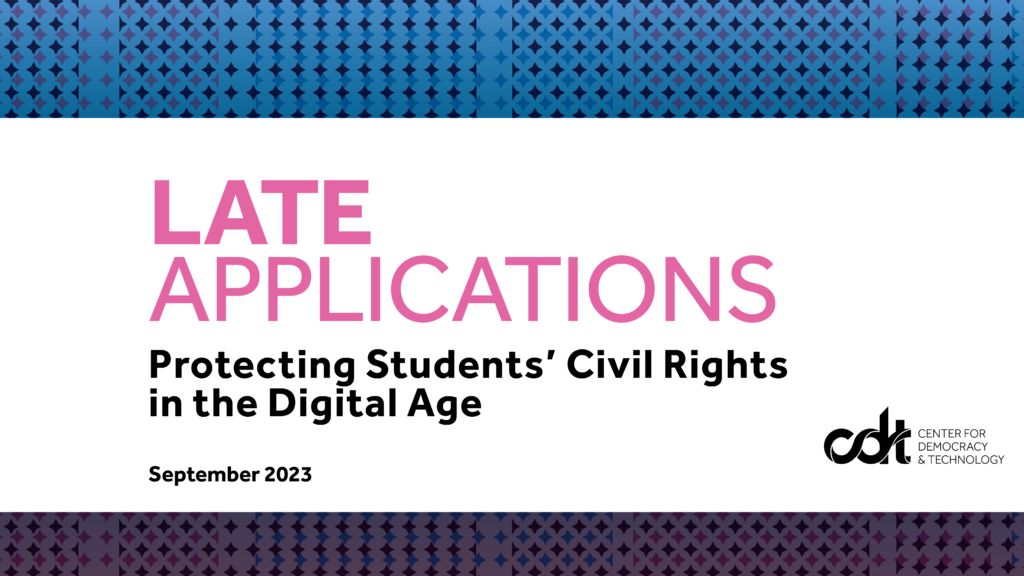Equity in Civic Technology, Privacy & Data
Report – Late Applications: Protecting Students’ Civil Rights in the Digital Age

This report is also authored by Sydney Brinker, former CDT Intern
Education data and technology continue to expand their role in students’, teachers’, and parents’ lives. While issues of school safety, student mental health, and achievement gaps remain at the forefront of education, emerging technologies such as predictive analytics, monitoring software, and facial recognition are becoming more popular. As these technologies expand, so have questions about how they might be used responsibly and without inflicting negative consequences on students, especially historically marginalized students.
The education sector has been responsible for protecting the civil rights of students for decades. Existing civil rights laws provide an important foundation to ensure that data and technology practices in schools achieve their intended function without inadvertently having discriminatory effects against students on the basis of race, sex, or disability.
Analysis of data that is disaggregated by a number of student demographics is crucial to understanding trends regarding protected classes of students and illustrates why an ongoing focus on student civil rights is necessary; however, the analysis contained in this report focuses on the use of technology and data in real time to make decisions about individual students, rather than the use of data to identify overall trends.
Examining the current uses of education data and technology under various civil rights concepts, this report offers guidance to help policymakers and education leaders understand how to better center civil rights in the digital age with respect to their practices and policies, especially regarding nondiscrimination and technology procurement. This guidance includes recommendations for school leaders to ensure that education data and technology uses do not run afoul of civil rights laws and that all students are positioned to be successful in school and beyond:
- Audit existing nondiscrimination policies, practices, and notices.
- Update or create new policies to address data and technology use.
- Revise or implement procurement policy for education technologies.
- Consolidate and make readily available all required nondiscrimination notices.
- Post the consolidated policy in district buildings and on school websites.
- Designate specific personnel to be responsible for ensuring compliance with nondiscrimination laws regarding education data and technology.
- Conduct analysis and publicly report information on nondiscrimination policies and practices for data and technology on an ongoing basis.


